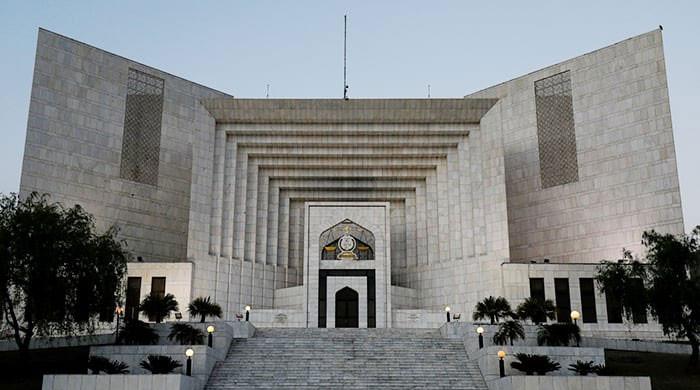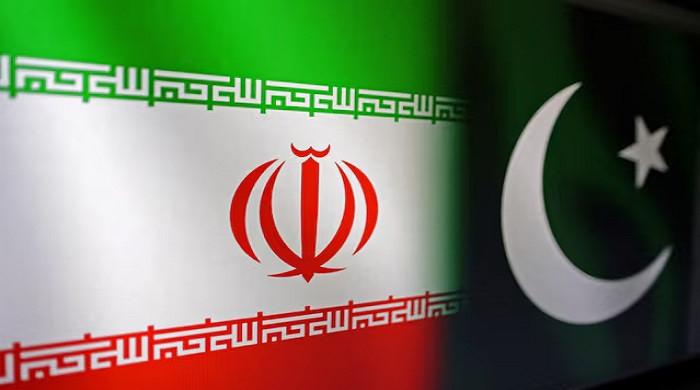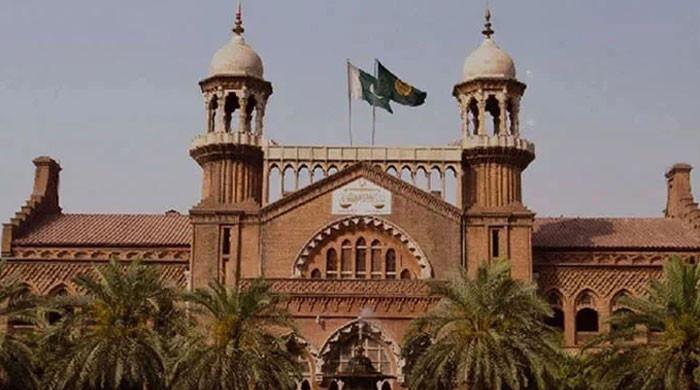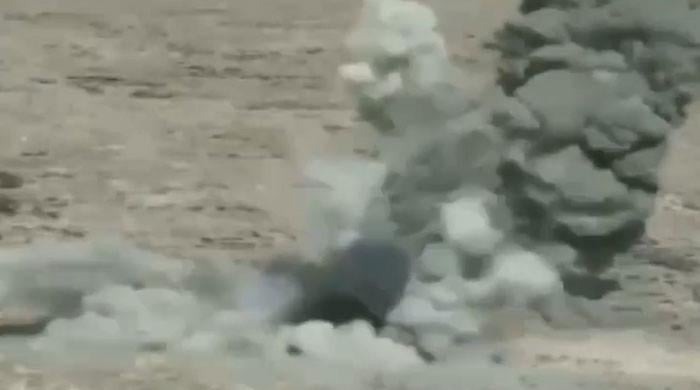Azam Swati ‘shifted to Islamabad’ after cases in Sindh disposed of as ‘C-class’
Prosecutor general Sindh tells SHC that Azam Swati's custody has been transferred to Islamabad Police
December 15, 2022
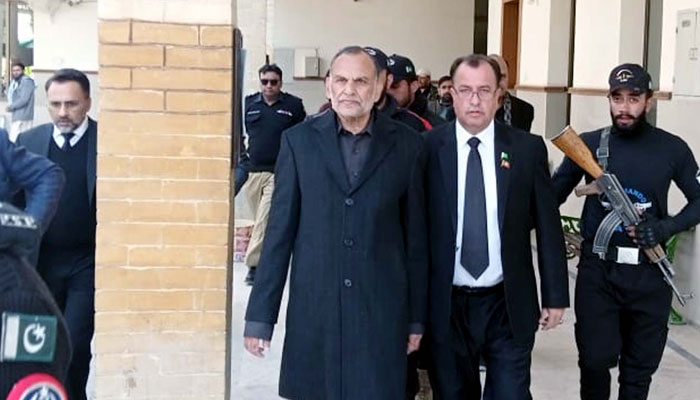
- Azam Swati's custody transferred to Islamabad Police, SHC told.
- Swati’s lawyer says 34 cases were registered against his client in Sindh.
- Swati shifted to Islamabad from Sukkur via special plane.
KARACHI: The Sindh High Court (SHC) on Thursday ordered that no cases should be registered against Pakistan Tehreek-e-Insaaf (PTI) Senator Azam Swati in the province any more in the controversial tweets case.
At the outset of the hearing, Inspector General of Sindh Police Ghulam Nabi Memon apologised to the court for his comments during the previous appearance.
Meanwhile, Sindh Prosecutor General Faiz Shah informed the SHC that Swati’s custody has been given to Islamabad Police. He also added that the cases registered against the senator have been categorised as “C-class”.
“All applications are now ineffective,” said the government lawyer, adding that the cases were registered by private citizens.
“According to law, the statement of these persons was bound to be recorded,” he added.
At this, Justice Karim Khan Agha lauded the Sindh government and IG Memon for resolving the “problem”.
The court then directed that no further FIR should be registered against Azam Swati in the case. It added that multiple cases were registered against Swati in different areas of the province on a single charge.
The court also directed that the C class report should also be submitted to the concerned courts in three days.
The court then disposed of the petitions filed by Usman Swati — PTI senator’s son.
Swati transferred to Islamabad
Meanwhile, sources told Geo News that Swati has been shifted to Islamabad and taken into the police’s custody. The senator was brought to the capital via a special plane from Sukkur, they added.
‘34 cases registered against Swati in Sindh’
Speaking to the media after the hearing, Swati’s lawyer Anwar Mansoor Khan told the media that 34 cases were registered against his client in Sindh and all have now been categorised as “C class”.
Khan said that the C class categorisation means that the FIRs are no longer effective. He added that he contended before the court that the cases against his client be cancelled through the judicial procedure.
“Judicial procedure requires that those cases shall be disposed of by the concerned judicial magistrate,” said the lawyer adding that the police will now submit a fresh report before the concerned magistrate.
SHC bars police from arresting Swati in more cases
Earlier this week, SHC barred the provincial police from arresting Senator Swati in more cases and also combined two petitions filed by his son Usman, seeking annulment of all cases.
During the hearing of the petition, SHC bench led by Justice Karim Khan Agha had directed the Prosecutor General Sindh (PGS) to furnish the court with a reply by December 15.
The court also issued notices to Inspector General Police (IGP) Ghulam Nabi Memon and the PGS.
The court also directed IGP to submit a detailed report regarding cases against Azam Swati in the province.
Swati was taken into custody by Sindh police last week over two cases registered in Warah and Qambar police stations after the Balochistan High Court ordered the quashing of all cases against him.
Controversial tweets cases
Swati was booked in multiple cases across the country for his controversial tweets against military officials.
He was first arrested in the case of a controversial tweet in October, after he posted a highly-hateful and threatening message against the army chief, judiciary, and other state institutions, on his official Twitter account.
The senator secured bail in that case.
But on November 27, the Federal Investigation Agency once again arrested him for using abusive language against senior military officers, including the then army chief.





